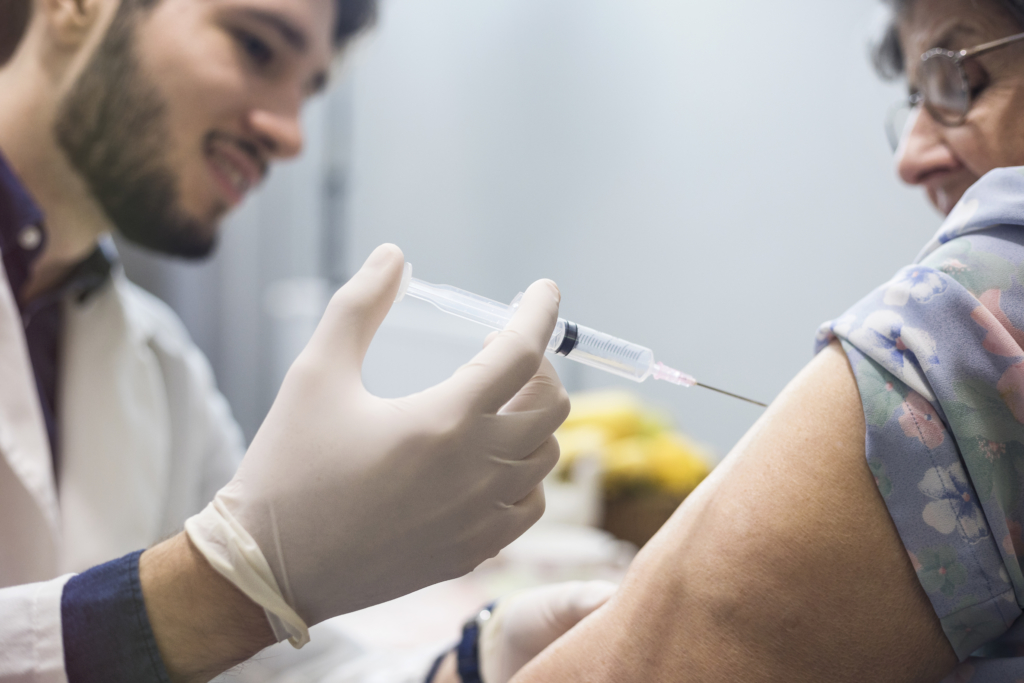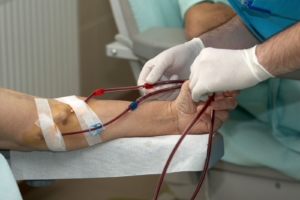Treatment
Although there is no cure for kidney disease, learn what you can do if you have Stage 5, End-Stage Renal Disease (ESRD). You have a number of treatment options to consider as you determine with your health care team which one works best for your life style.
Contents:
 Once you reach kidney failure, the diagnosis can be overwhelming. It is important to remember that kidney failure is not the end of your life, only the end of your kidney function. The choices for treatment for End- Stage Renal Disease (ESRD) include:
Once you reach kidney failure, the diagnosis can be overwhelming. It is important to remember that kidney failure is not the end of your life, only the end of your kidney function. The choices for treatment for End- Stage Renal Disease (ESRD) include:
- Kidney Transplant
- Dialysis (Home Dialysis, Peritoneal Dialysis, In-Center Hemodialysis)
- Conservative management (also known as medical management or supportive care)
Some people may start with one form of treatment and then later choose another treatment method. For example, someone might start on dialysis in-center and later choose to do dialysis at home. Or a person may do dialysis and then choose to receive a transplant. Or someone may start treatment with a transplant and if the transplant fails, the person goes on dialysis.
There is no cure for kidney failure and no one right treatment for everyone. Each treatment choice has advantages and disadvantages. It is important to participate with your health care team in your treatment choice based upon your lifestyle and what works best for you. If your nephrologist (kidney doctor) doesn’t offer the treatment choice that you want, you can be referred to another doctor that does offer the treatment to discuss your choice further.
Treatment and Modality Options for Kidney Disease
Related Information
Let’s Get Away!
Are you ready to take a small trip, a vacation or a weekend getaway? Every month, we bring you current renal news articles but we have decided to focus on travel tips for renal patients. [...]
Why Medicare’s Payment System Keeps New Dialysis Drugs from Reaching Patients
Jackson Williams, DPC Vice President of Public Policy Payment bundling is a technique Medicare uses to increase efficiency and reduce low-value care during a treatment episode. Congress adopted a payment bundle for [...]
A Faithful Kidney Patient Caregiver’s Journey
Sheree Stephens, DPC Patient Ambassador I would describe being a kidney patient caregiver to my husband as inspiring, beautiful, and life changing. Ken has fought kidney failure for years, and I’ve stood [...]
Preventing Infections in Hemodialysis
Dr. Anil Agarwal, Nephrologist Download PDF Article Descargar artículo en PDF For patients undergoing hemodialysis, infection prevention is not just a recommendation, it’s a necessity. Hemodialysis patients have a compromised [...]
Phosphorus: A Hidden Challenge in Dialysis
Natalie Zuniga, DCP Board Vice President I was diagnosed with End Stage Renal Disease (ESRD) – or kidney failure – soon after a heart attack seven years ago. Like many ESRD patients [...]
Patience and Strength: A Caregiver’s Journey
Christopher James, DPC Patient Ambassador Caring for a loved one with kidney failure requires confronting serious challenges, making significant sacrifices, and pushing through intense emotions. My name is Christopher James, and for [...]
Learn More About Treatment

Treatment
Chronic kidney disease may progress to End-Stage Renal Disease, which has a number of treatment options.

Early Intervention
There are proactive actions you can take to decrease your chances of developing kidney disease in the future.

Medication
It is important to take all of your medicines as prescribed for your kidney disease, even if you don’t notice an immediate difference.










